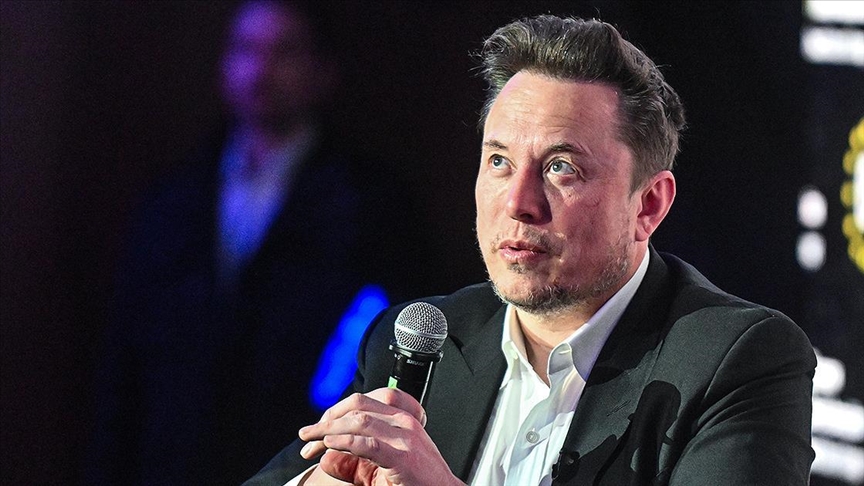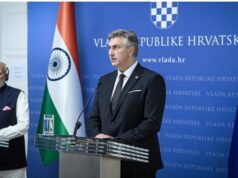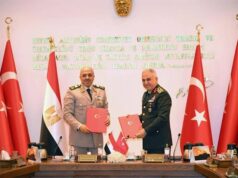German government accuses Elon Musk of interfering in election

By M A Hossain
The German government has accused tech billionaire Elon Musk of meddling in the country’s upcoming federal election, a move that has sparked widespread debate and controversy across political and social circles.
Musk, a close ally of US. President-elect Donald Trump, recently praised Germany’s far-right Alternative for Germany (AfD) party as the “last spark of hope” for the country, triggering accusations of election interference from Berlin.
Christiane Hoffmann, spokesperson for the German cabinet, publicly criticized Musk on December 30, stating, “Elon Musk is indeed trying to influence the federal election through his statements.”
She emphasized that while freedom of speech allows individuals to express opinions-even those deemed “the greatest nonsense”-it does not shield them from the repercussions of their words.
Musk ignited the controversy earlier this month with a post on his social media platform, X (formerly Twitter), claiming that “only the AfD can save Germany.” The statement was followed by an op-ed in the German newspaper Welt am Sonntag, where Musk defended the party against allegations of extremism and lauded its economic policies.
In his op-ed, Musk argued that “The traditional parties have failed Germany. Their policies have led to economic stagnation, social unrest, and an erosion of national identity.” He dismissed accusations of the AfD being far-right, describing such labels as “clearly false.”
The AfD, founded in 2013, has steadily gained popularity, positioning itself as an anti-establishment force critical of immigration policies and the European Union.
However, the party has been classified as a “suspected extremist organization” by Germany’s domestic intelligence service due to its hardline stances.
Musk’s public support for the AfD has drawn sharp criticism from across Germany’s political spectrum. Friedrich Merz, the leading candidate of the conservative CDU/CSU bloc and a potential future chancellor, condemned Musk’s intervention as “intrusive and presumptuous.” Merz stated, “I cannot recall a similar instance of interference in the electoral campaign of a friendly country.”
Lars Klingbeil, co-leader of the Social Democratic Party (SPD), went a step further, comparing Musk to Russian President Vladimir Putin. “Both are attempting to weaken Germany by supporting the AfD,” Klingbeil alleged, framing Musk’s actions as part of a broader threat to the nation’s stability and democratic norms.
The accusations against Musk come at a time of significant political instability in Germany. The coalition government led by Chancellor Olaf Scholz collapsed in early November due to internal disagreements over spending priorities. Scholz’s inability to navigate these disputes led to a confidence vote in the Bundestag on December 16, which he lost, effectively ending his tenure.
As a result, a snap election has been scheduled for February 23, thrusting Germany into a heated campaign season.
According to recent polling by the INSA institute for Bild, the AfD is currently second in voter support, trailing only the CDU/CSU bloc. Notably, AfD co-leader Alice Weidel has emerged as a front-runner in the race for the chancellorship, outpacing her rivals from the traditional parties.
Weidel, 45, is expected to be officially confirmed as the AfD’s candidate at a party conference next month.Musk’s involvement in German politics highlights the increasingly complex relationship between technology moguls and democratic processes.
His ownership of X has already made him a polarizing figure in global discourse, with critics accusing him of leveraging the platform to amplify divisive opinions.
In Germany, his endorsement of the AfD has raised concerns about the influence of foreign actors on national elections.“It’s not just about free speech,” argued Hoffmann.
“When someone with such immense reach and resources publicly aligns with a political party, it can significantly alter the dynamics of an election.”The AfD’s ascent has been marked by controversy since its inception.
Originally founded as a Eurosceptic party, it has evolved into a far-right platform emphasizing anti-immigration policies and skepticism of multiculturalism.
The party’s classification as a “suspected extremist organization” has not deterred its supporters, who argue that it represents a voice for ordinary Germans frustrated with establishment politics.
Musk’s op-ed amplified these sentiments, portraying the AfD as a bastion of “political realism” in a nation grappling with economic and social challenges.
However, critics argue that Musk’s portrayal glosses over the party’s divisive rhetoric and its potential to destabilize Germany’s political landscape.
Musk’s intervention has sparked a broader conversation about the role of influential individuals and corporations in democratic processes.
While the German government has not accused Musk of breaking any laws, his actions have raised ethical questions about the boundaries of acceptable influence in a foreign election.
Political analyst Dr. Claudia Meier from the University of Berlin remarked, “The issue is not just Musk’s comments but the precedent it sets. If tech billionaires can openly campaign for specific parties in other countries, it undermines the principle of fair and independent elections.”
Musk’s statements have also drawn international attention, with commentators in the US and Europe debating their implications.
Some view his remarks as an extension of his support for populist and nationalist movements, aligning him with leaders like Trump and Hungary’s Viktor Orbán.
Others argue that Musk’s comments are simply a reflection of his personal beliefs, albeit amplified by his massive global platform.
The accusations of election interference against Elon Musk underscore the growing intersection of technology, politics, and democracy.
As Germany heads into a pivotal election, the controversy surrounding Musk and the AfD adds another layer of complexity to an already turbulent political landscape.
Whether Musk’s endorsement will sway public opinion remains to be seen, but it has undoubtedly ignited a critical debate about the influence of powerful individuals on democratic processes.




